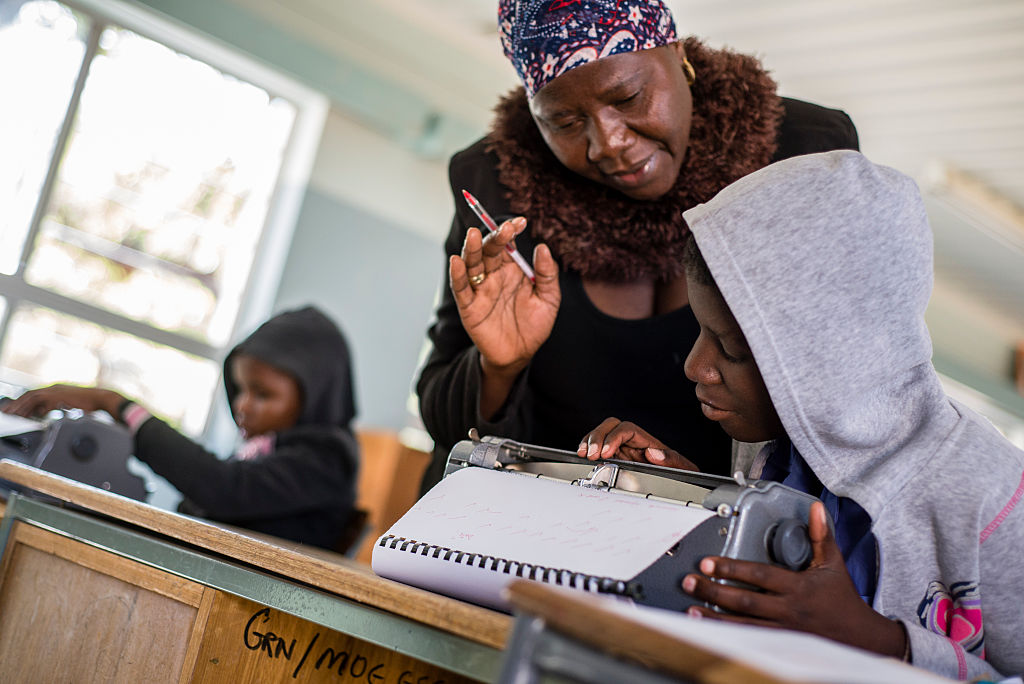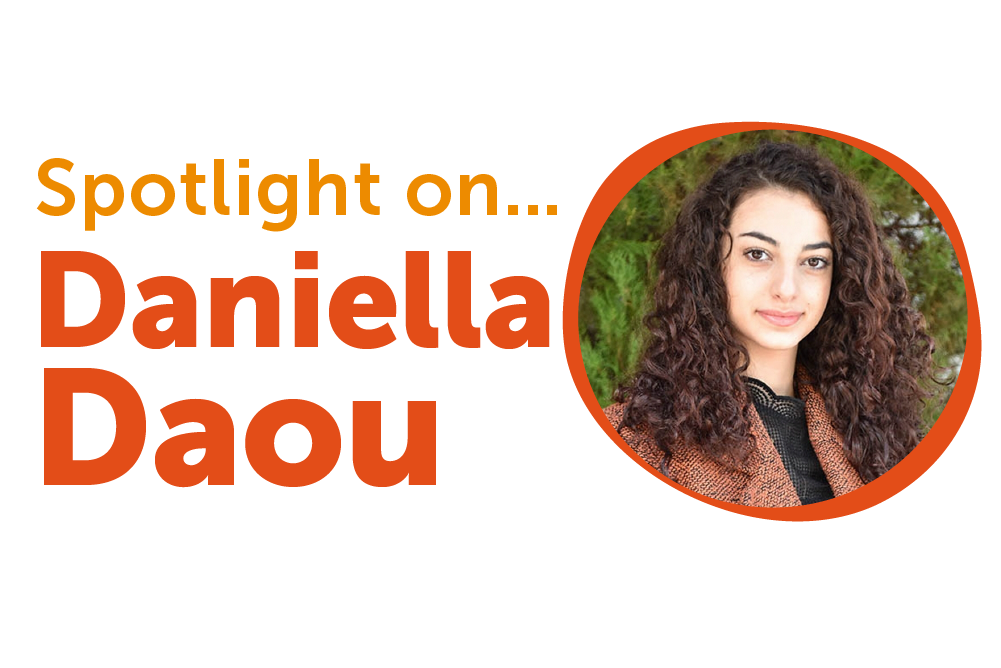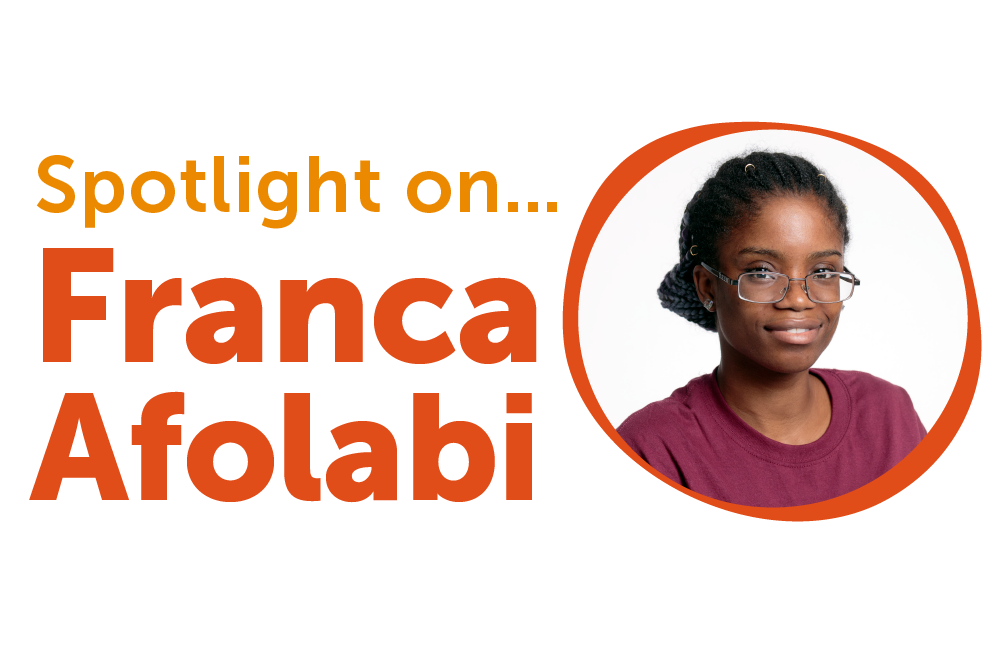
“A welcoming hand, a listening ear and a loving heart”

Children with disabilities, Spotlight On ...
An in-depth chat with Daniella on the fantastic work of the SKILD Center in Lebanon, which partnered with Theirworld on a video project to help children learn during the pandemic.
Jump to
- Tell us about your journey to become a part of SKILD.
- What are some of the challenges SKILD has faced in the past two years?
- Why is it important to support children with learning differences?
- What kind of obstacles do children with learning differences face and what kind of support do they need to overcome these?
- At the start of the pandemic, SKILD created videos to help children with special educational needs continue learning during lockdown. How are these videos still being used?
- What are your hopes for the future of SKILD?
- What keeps you motivated when challenges seem too large to overcome?
- What is the greatest lesson you have learned outside the classroom?
Theirworld works with many amazing partners in different countries. One of them is the SKILD Center in Lebanon, which was founded in 2011 to help children with special needs. SKILD stands for Smart Kids with Individual Learning Differences.
In the latest in our Spotlight On … series on inspiring people, we talk to Daniella Daou, a 25-year-old from Lebanon who joined SKILD in 2018 and co-ordinates development and partner relations.
Daniella says at SKILD she has been “discovering the remarkable hearts and capabilities of children with special needs – and witnessing the joy of their parents with every achieved milestone”.
Theirworld worked with the organisation on an inclusive early childhood project and then supported a hugely successful SKILD video programme during the pandemic that helped children continue learning while their schools were closed.
Tell us about your journey to become a part of SKILD.
Graduating with a bachelor’s degree in political science and securing an internship at the Office of the Prime Minister, my world revolved around international relations, state affairs and public policy.
Little did I know that my passion for creating change would start with inclusive education. Soon after the end of the internship, I applied to the Lebanese Society for Educational and Social Development (LSESD), the legal umbrella under which SKILD operates.
You might ask why the sudden shift in focus? Since I was four years old and until my last high school year at 17, I went to the Beirut Baptist School (BBS) in the heart of Beirut, where quality education meets community service.
BBS, through the diversity of its learners, instilled in me a responsibility to accept everyone and ensure that they have a place and that their voices are heard. As one of the early inclusive schools in Lebanon, BBS also operates under LSESD, with the school and SKILD cooperating closely through sharing expertise, building capacities and assessments to make sure the needs of differently-abled children are met.
This deep sense of creating and being part of the change that I want to see in the world drove me to the third sector – to give back to the community through the place that drew a smile on my face as a child and pushed me to be my best.
Always a political science enthusiast, I am currently pursuing my graduate studies in Political Science with an emphasis on Public Administration at Notre Dame University in Beirut.
What are some of the challenges SKILD has faced in the past two years?
Lebanon has been facing compounded crises for the past two years. From the uprising in October 2019 and the port blast in August 2020 to the economic meltdown that left more than 80% of the population under the poverty line, the Lebanese and refugees residing in Lebanon have not had a break in a long time.
According to the latest Human Rights Watch report: “About 700,000 children, a third of the school-age population, received no education last year and the 1.3 million children who were enrolled often received little education during prolonged school closures due to anti-government protests, Covid-19 and the Beirut port explosion, which damaged 163 schools. Distance learning was inaccessible for children who lacked devices, internet connections, or reliable electricity.
“Nearly 42,000 children dropped out of school last year alone, and the UN and the World Bank predict that more children will be excluded this year. In the past year, 50% of households cut spending on education, 15% pulled children out of school and 9% sent children to work, the UN found. For Syrian refugee children, attendance dropped by 25% last year.”
All of these challenges have affected the children we serve, as many families can no longer afford specialised services at a time when parents are facing salary depreciation and rising costs due to triple-digit inflation.
In addition, and as the above statistics indicate, many children had no access to education during school closures due to the lack of devices, reliable internet connections and extended hours of power cuts.
Why is it important to support children with learning differences?
Children with learning differences are differently abled, not less abled. Just like two mainstream individuals, where one best retains information through visual learning and the other through auditory studying methods. We all have different needs.
Children with learning differences, like all other children, have the right to education, emotional support and all the necessary tools that help them reach their best potential. All children require love, support and encouragement. For kids with learning differences, such positive reinforcement ensures that they grow up with a strong sense of confidence and determination.
Providing a safe environment for children with learning differences has proved to not only help them excel but also create a more productive environment for their peers.
Last September, SKILD launched the IDEAL programme, a two-year higher education certification for youth with special needs, in collaboration with Notre Dame University. This includes having IDEAL students audit regular university courses and carry out student jobs on campus during the first year and in inclusive companies during the second year.
From the first semester, the SKILD and NDU teams can notice the difference that inclusion has made. Professors were astonished with the rising percentages of participation and engagement in class from mainstream students after their peers with special needs joined the course.
In addition, the offices where the IDEAL students are performing their student jobs have reported increased productivity and efficiency. According to the US Department of Labor, having special individuals in the workplace increases employee productivity by 72% and workplace safety by 45%.
What kind of obstacles do children with learning differences face and what kind of support do they need to overcome these?
The absence of an inclusive culture affects the integration and development of children with learning differences. While inclusion has advanced since 2011 when SKILD was established, a long journey is still ahead to keep the ball rolling and ensure that an additional number of children have their needs met.
In a Middle Eastern culture of shame and honour, special needs were historically regarded as taboo. This forced parents to hide their children away from the public and compelled the educational sector to deny the presence of special cases in schools.
With the efforts of the international community and the non-profit sector in Lebanon, the number of inclusive schools, special education departments and self-contained classrooms is increasing.
SKILD currently partners with 16 different schools and educational centres to provide specialised services for children, build the capacities of educators and support them in transitioning towards full inclusion.
With the school closures due to strikes and/or lockdown periods, and the dire financial situation, the consistency which is needed for the development of children with learning differences has become a scarce reality.
Consistency and routine are needed for these children to feel safe and comfortable. This situation has also affected parents as they see their children struggle and as they themselves are overwhelmed by the intensifying daily pressures. During this time, families we serve need a welcoming hand, a listening ear and a loving heart.
At the start of the pandemic, SKILD created videos to help children with special educational needs continue learning during lockdown. How are these videos still being used?
The majority of families, unable to afford therapy and special education for their children, either opted out of such services or reduced the number of sessions. Consequently, this negatively affected the development of children’s milestones and personalised educational objectives.
This was also exacerbated by the extended lockdown periods and the poor telecommunication infrastructure that prevented most children from receiving comprehensive online education.
Theirworld supported the production of 50 videos by therapists on several topics to give practical exercises targeting emotional, psychomotor, speech, behavioural, academic and parenting challenges.
The videos are grouped together to form an online library accessible free of charge for parents and educators. They were also filmed in Arabic, which facilitated their reach since online resources in Arabic are scarce.
Overall, the videos reached around 350,000 Facebook users and had 20,000 direct views on YouTube. The videos are still available online and widely used by educators and parents for easy and hands-on activities that help in reaching different objectives.
In addition, and with the support of Theirworld, SKILD is also upscaling the videos project into a nationwide awareness campaign to be launched in April on the National Day for Students with Learning Differences.
We will produce 20 short daily episodes to be aired on MTV Lebanon, which has a viewership of over three million. The campaign entails short, televised video segments with tips on different challenges that children might be faced with at school or at home.
What are your hopes for the future of SKILD?
We hope to continue advancing inclusion in Lebanon and to see every child, regardless of differences, recognised for their potential as an integral part of society.
After starting partnerships with schools, we saw children we work with graduate or leave school with no specific higher education path for them.
For this reason, and to accompany them and provide them with continuous opportunities, we initiated the IDEAL university programme in collaboration with NDU and Lipscomb University.
We hope that this programme equips young graduates with special needs with the academic, social and life skills required for them to lead independent lives as productive citizens. We also hope that the efficient culture of inclusion spreads into the work market to give these graduates a chance to be employed.
We hope to continue creating a change and reflecting love to children with learning differences and their families.
What keeps you motivated when challenges seem too large to overcome?
The smiles of parents after they see their children being taken care of brings joy to my heart. Seeing the children at the centre every morning, their interactions and progress keeps me motivated to create a better environment for them where they can grow to achieve their fullest potential.
A simple hello, eye contact or hand wave from them to greet me passing by means the world, given the hard work and determination of therapists behind it.
The transformation of parents’ wellbeing in the parent-to-parent support group is also a testimony to how much these families need a listening ear.
When parents first come to SKILD, they are most often frustrated and fail to see the cup half-full. However, when they meet with other parents and have the chance to be understood by someone who has been in their shoes, or still is, it provides them with a feeling of security and belonging.
These transformations, testimonies, support groups and friendships formed keep us going and compel us to never forget that kindness goes a long way and that sometimes all a parent wants is someone who listens.
What is the greatest lesson you have learned outside the classroom?
Believe in yourself, be passionate and do everything from the heart – you always have more potential than you think you do. However, at the same time, be humble to ask for help and always include others around you.
- The SKILD videos initiative – made possible by the players of People’s Postcode Lottery – is one of 10 education projects Theirworld launched during the Covid-19 pandemic, helping more than 100,000 children around the world.
More news

